Search
Did you mean: Zeus?
Search Results
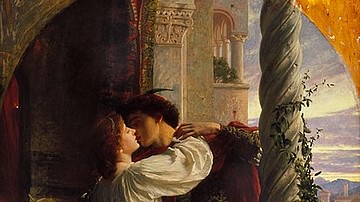
Definition
Romeo and Juliet - Shakespeare's Greatest Love Story
Romeo and Juliet is a romantic tragedy written by William Shakespeare. First printed in 1597, it remains one of the most famous works of Western literature and – alongside Hamlet – is one of Shakespeare's most oft-performed plays. The play...
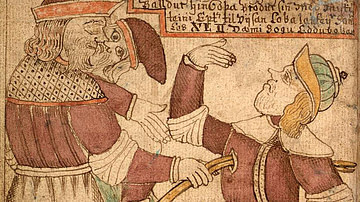
Definition
Baldr
Baldr is a god in Norse mythology associated with light, wisdom, and courage, although he is never specifically defined as the god of any of these. He is best known for his dramatic death, which heralds the coming of Ragnarök, the end of...

Definition
Medieval Icelandic Government
Early medieval Icelandic government, or Viking Iceland, has been termed an incipient form of democracy or democratic parliamentarism, however, the system was actually nothing like its European counterparts, be they medieval or contemporary...
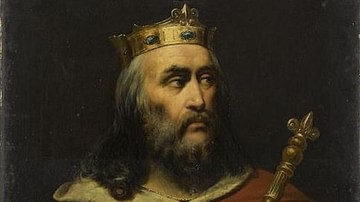
Definition
Chlothar II
Chlothar II was a Merovingian king of the Franks, who reigned from 584 to 629. He inherited the throne of Neustria as an infant, upon the assassination of his father, Chilperic I (r. 561-584). Following a long and bitter power struggle with...

Definition
Mercy Otis Warren
Mercy Otis Warren (1728-1814) was an American poet, playwright, and activist during the era of the American Revolution (1765-1789). Through her works of political satire, she advocated for the Patriot cause and became acquainted with several...
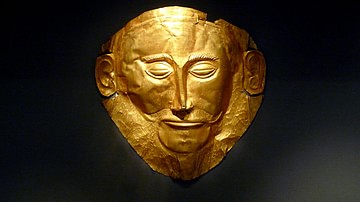
Definition
Agamemnon (Person)
Agamemnon was the legendary king of Mycenae and leader of the Greek army in the Trojan War of Homer's Illiad. Agamemnon is a great warrior but also a selfish ruler who famously upset his invincible champion Achilles, a feud that prolonged...

Definition
Galileo Galilei
Galileo Galilei (1564-1642) was an Italian mathematician, physicist, astronomer, and natural philosopher. He created a superior telescope with which he made new observations of the night sky, notably that the surface of the Moon has mountains...
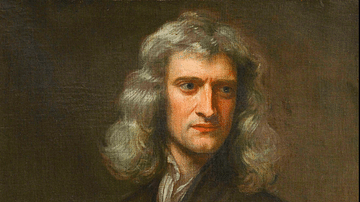
Definition
Isaac Newton
Isaac Newton (1642-1727) was an English mathematician and physicist widely regarded as the single most important figure in the Scientific Revolution for his three laws of motion and universal law of gravity. Newton's laws became a fundamental...
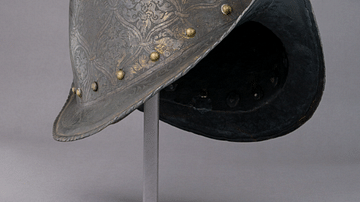
Definition
Conquistador
The conquistadors, meaning "conquerors", were Iberian military adventurers who operated as the vanguard of empires in the 15th and 16th centuries by exploring areas of the world unknown to Europeans, defeating indigenous armies, and then...
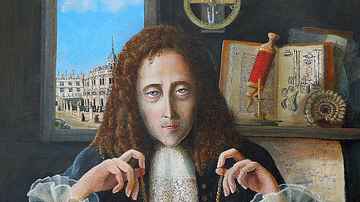
Definition
Robert Hooke
Robert Hooke (1635-1703) was an English scientist, architect, and natural philosopher who became a key figure in the Scientific Revolution. Hooke conducted his scientific experiments outside the auspices of universities, and he was a great...